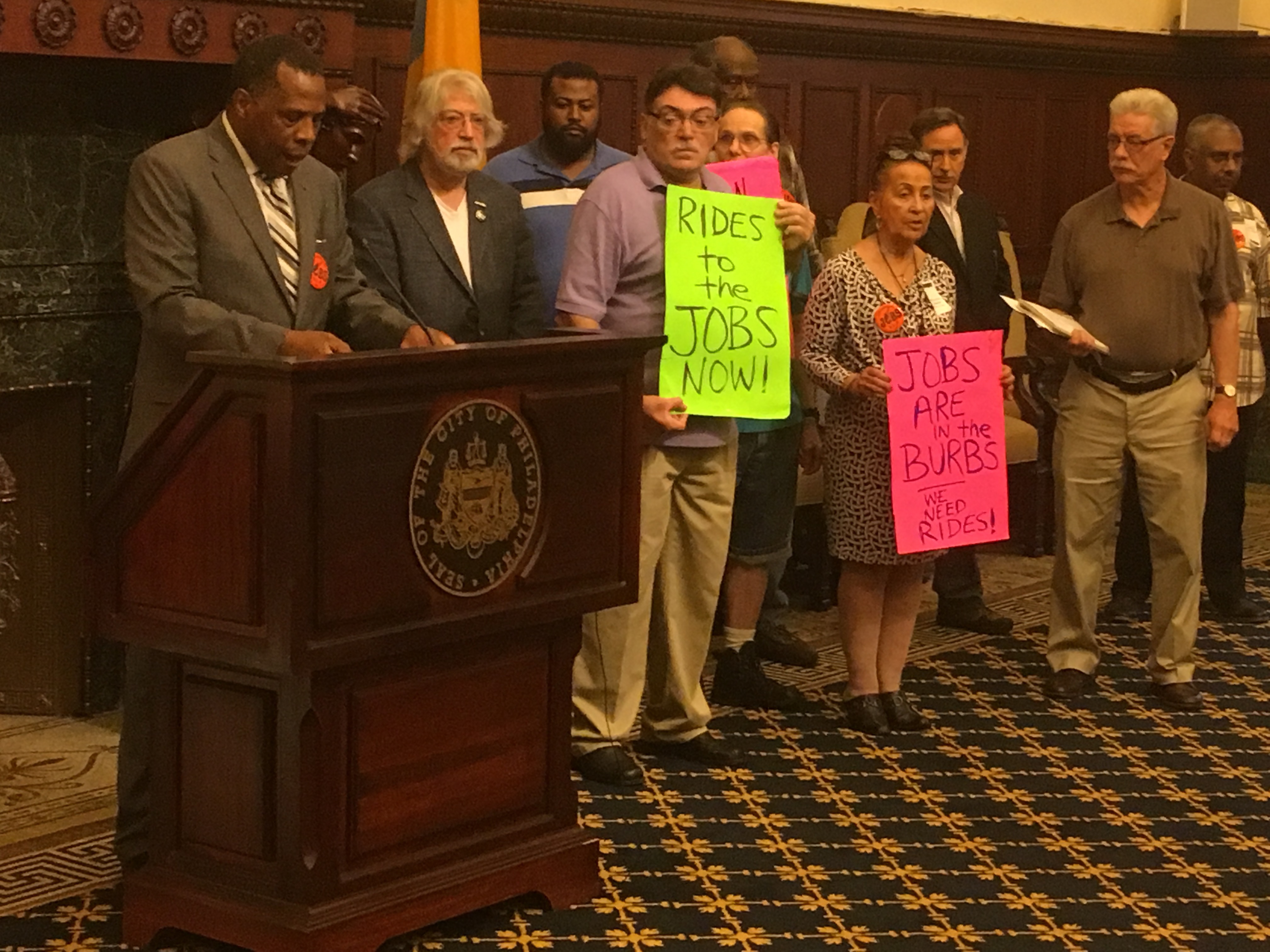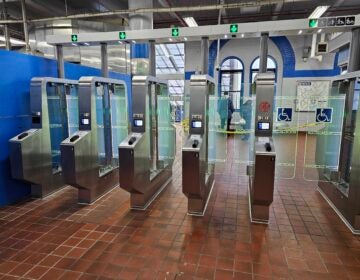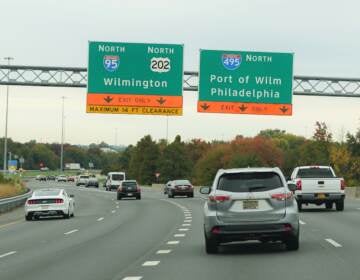PUP begs for a scrap of funding for its vanpool program for reverse commuters

The Philadelphia Unemployment Project rallied for support at City Hall Wednesday morning, hoping to pressure City Council and Mayor Jim Kenney to fund its small vanpooling program for reverse-commuting Philadelphians who can’t afford their own cars.
“The vans, they’re — let’s just say — a life saver,” said Timothy Harris, a West Philadelphian who uses PUP’s vans to get to work at RGIS Inventory Specialists in Darby.
Currently, the program coordinates 13 vanpools for about 65 participants, who chip in $24 a week to rent the subsidized vans. Harris picks up his fellow commuters at 30th Street Station most mornings, then drops them off at their jobs in less-transit accessible parts of Delaware County.
The program costs about $360,000 annually, most of which comes from state funds. Until this year, those state funds were channeled to PUP through SEPTA. But now, PennDOT is taking more direct control, said PUP’s executive director, John Dodds. Whereas SEPTA allowed PUP to fulfill a “local match” requirement through grants and other private funds, PennDOT is now requiring that the 15 percent local match come from the local municipality, that is, Philadelphia.
PUP needs the city to contribute $55,000 to maintain the program at its current level. Otherwise, PennDOT might shut off the funding spigot and the vanpools would dry up.
Compared to those in some of its East Coast peers, the Philadelphia region’s jobs are spread out. According to a 2013 Brookings Institution paper, job sprawl here is the fourth worst in the nation. Even though employment has been growing in recent years in Center City and University City, only 23 percent of the region’s jobs were located in Philadelphia itself last year, and nearly 40 percent of Philadelphians commuted to work outside the city.
That job sprawl makes it difficult for public transit to connect residents to employers. It’s time-efficient and cost-effective for one bus to run through a few neighborhoods and drop everyone off at a tight cluster of skyscrapers, but if SEPTA has to make multiple stops at separate office parks and shopping centers, the trips become too long and slow to work. Vanpools help fill in those public-transit gaps at a per-trip cost comparable to some of SEPTA’s offerings.
The nonprofit Unemployment Project is asking for $250,000, saying it would allow the program to expand to 300 participants. Dodds admits that’s not a huge percentage of commuters in a city of 1.6 million, but, he argues, that doesn’t mean the program isn’t worth funding. In fact, he’d like Philadelphia to emulate Seattle, where a similar program provides 1,500 vans to lower-income reverse commuters.
A letter signed by 13 City Council members urged Mayor Kenney to include funds for the PUP program in his budget for the coming fiscal year. While the mayor proposes a budget every year, it’s primarily up to the council to enact an ordinance authorizing the city’s finances. In theory, if City Council authorized funding for PUP’s commuter-options program, Kenney could veto the budget or simply decline to spend the authorized amounts, but neither would be likely. Budget negotiations are currently underway.
At a hearing on the city’s contributions to SEPTA’s budget in April, Councilman Derek Green raised the prospect of reallocating some of the money the city contributes to the SEPTA budget to support the commuter-options program. SEPTA officials responded by noting that the city’s $87 million in operating funds and $5 million in capital funds to SEPTA are also allocated for statutory matches — in other words, the amount of state and federal funding the transit agency receives is predicated on the city’s providing those minimum contributions.
Green was unsatisfied with SEPTA’s response at the time, noting examples of previous instances when the council withheld, or threatened to withhold, the city’s matching funds to get favored projects more support from the regional transit agency.
PUP had a similar rally last year, hoping to convince the city to expand the program’s funding to $750,000. Despite pledges from some Council members, PUP’s funding went unchanged. With so much more on the line this year, the organization hopes this year’s rally will be more successful convincing city leaders to lend their support.
WHYY is your source for fact-based, in-depth journalism and information. As a nonprofit organization, we rely on financial support from readers like you. Please give today.






